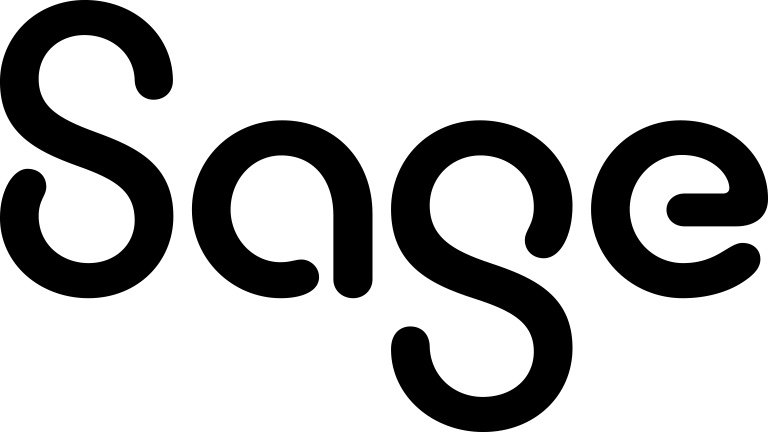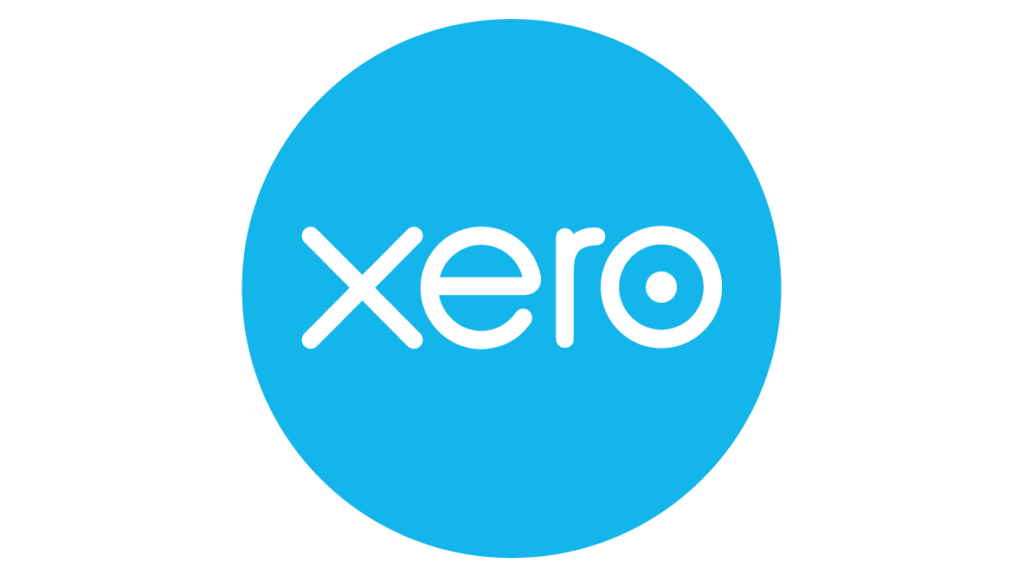Bookkeeping is the bane of every small business owner’s life. Sitting down for an hour or an afternoon a week, going through invoices and receipts, can be incredibly tedious. After all, you didn’t go into business for yourself to become a bookkeeper. Happily, there are plenty of small business software options out there to make life easier.
Bookkeeping vs accounting
Bookkeeping is the process of keeping accurate records of the financial activities of your business – in simplest terms – keeping track of the money your business makes and spends and keeping tabs on how much cash you’ve got in the bank.
Accurately and regular bookkeeping is important because it helps a small business to:
- Keep track of overall profitability as well as understanding which parts of the business are less profitable than others
- Ensure it has accurate records as proof of expenses incurred and to help support and submit its self-assessment returns
- Plan for tax liabilities and avoid unnecessary penalties
- Budget for expenses
- Manage cashflow
- Keep track of revenue to ensure you register for VAT when you need to
- Calculate their VAT liabilities (if they’re VAT registered)
If you’re VAT registered, unless you register for Flat Rate VAT, your bookkeeping will get a bit more labour intensive as you’ll need to track and record VAT paid on relevant expenses.
Accounting is the process of interpreting financial records and forecasting business performance in the coming months and years.
This helps you understand how well your business is performing whether purely financially or in overall growth. It’s best to work with a chartered accountant, as they can often become your most trusted adviser.
How can bookkeeping software help my small business?
There are many small business bookkeeping software solutions out there to help you keep track of what’s coming in and out. And when you consider the time spent doing bookkeeping on paper or using generic spreadsheets, the money you save using up-to-the-minute HMRC-compliant software means it pays for itself.
Best accounting software if you’re a sole trader – Here, we explore how to find the right accounting software for you as a sole trader, along with some of the best platforms around
Which software features to look out for
When deciding what software to choose, consider how much support is offered, as this will be key if bookkeeping is new to you.
Features to look out for to see if they’re included as part of the package:
- Digital record capture – Some solutions allow you to use your smartphone or desktop scanner to capture everything that’s on a receipt and automatically upload it into your system.
- Automatic reconciliation – Software that integrates directly with banks automatically reconciles transactions between your bookkeeping system and your bank accounts.
- Mobile functionality – Being able to access the software on your smartphone means you can do bookkeeping on the move. Especially helpful if you’re a tradesman or someone who works out of the office.
- Tax automation – Software should be compliant with the latest HMRC regulations.
- Secure cloud storage – Cloud based software will securely store and back-up your data, meaning you don’t have to worry about it being lost.
- Ability to upload receipts or invoices easily – or integrate with something like Dext or Hubdoc. To save time you should looking for uploads that include optical character recognition (OCR), which means it reads the invoices and pre-populates lots of fields.
- Integration capabilities – make sure that your small business bookeeping software integrates with other software you use, such as your EPOS system or inventory tracker.
- Budgeting – if you can put a budget in your accounting software, you’re more likely to keep tabs on how well your business is performing against expectations.
- Reports – does the software offer easy-to-understand reports?
- Is it Making Tax Digital compliant? – HMRC has a list of software providers its MTD reporting works seamlessly with.
Try a free trial – how does it feel? Is it intuitive? What is the support like?
Top 5 accounting software providers for UK small businesses – Looking for a new accounting software provider for your UK small business? Here are 5 accounting software providers to choose from
Small business bookkeeping software

ClearBooks
Overview:
Tim Fouracre, then an accountant at KPMG, founded Clear Books in July 2008 working out of his spare room. He had developed a simple web-based double-entry accounting system to look after the accounts of the small web-development company he was running in his spare time. He then realised there would be thousands of small UK businesses looking for that same kind of software. Fouracre spent nine years building up Clear Books before stepping down as CEO in 2017.
Today, Clear Books provides clear and simple cloud accounting and payroll software to over 13,000 small businesses in the UK.
Pros:
- Simple to use
- Designed for British businesses
- UK-based
- Support team sits alongside developers
- Value for money
Cons:
- Some functions can be overly complicated
- Not suitable for enterprise level businesses
- Continual UI updates do frustrate some customers
Pricing:
Clear Books is offering 50 per cent off for the first three months before rising to the list price.
Small business is £13pm + VAT with 50 per cent discount for three months if you sign up during one-month free trial
- Invoice/quote creator
- Bill & receipt tracking
- Bank feeds and uploads
- Reports (e.g. P&L)
- Dividends tool
Medium is £28 per month and has everything in the Small Business package plus:
- MTD VAT reporting
- CIS
Large is £34 per month and has features everything in the Medium package plus:
- Project accounting
- Multi-currency
- Expenses
- Fixed assets

FreeAgent
Overview:
British-owned accountancy software package FreeAgent began life in Edinburgh, Scotland in 2007 and quickly became one of the UK’s fastest-growing technology firms, raising over £1m through crowdfunding site Seedrs and ultimately going public in 2016. Royal Bank of Scotland group bought the company in 2018 and now offers complimentary FreeAgent to business customers of NatWest, Royal Bank of Scotland, Ulster Bank and small business banking app, Mettle. Around 150,000 businesses currently use FreeAgent.
Pros:
- Clear and easy-to-use interface
- Very good customer support
- Puts bank and PayPal transactions into bookkeeping form and tagged with what each transaction is, whether it’s a sale or stock purchase, makes for easy bookkeeping
Cons:
- Expensive compared to entry-level packages offered by FreshBooks Lite (£6), Zoho Books Standard (£10) and Clear Books Small Business (£13)
- Users complain some features are buggy, with glitchy transaction automation, which means you have to compare the actual balances show on PayPal or your bank with the FreeAgent bookkeeping balance to doublecheck accuracy
Price:
FreeAgent is offered for free if you retain a business bank account with NatWest, Royal Bank of Scotland or Ulster Bank, or make at least one transaction per month through a Mettle bank account.
Like Clear Books, Xero, Sage and others, offers a 30-day free trial.
Sole trader is £19 per month plus VAT.
- Dashboard
- Business Insights with Radar
- Estimates
- Invoicing
- Expenses
- Projects
- Time Tracking
- Payroll
- Banking
- VAT filing
- Self-Assessment
Partnerships and LLP is £24 per month plus VAT
This package includes everything in Sole Trader apart from self-assessment.
Limited company is £29 per month plus VAT
This package includes everything in Sole Trader plus end of year filing.

FreshBooks
Overview:
Back in January 2003 FreshBooks founder Mike McDerment, who at the time was running a design studio, lost hours of work, having saved the wrong invoice using Word and Excel. He decided there had to be a better way and over the next fortnight coded what became the beginnings of FreshBooks.
He and two colleagues then spent the next four years working out of McDerment’s parents’ basement building the company, which basically adapted double-entry bookkeeping for the internet age but more importantly was specifically designed for small business.
Today, the Toronto-based company has over 500 employees and more than 24m people in over 160 countries have used FreshBooks.
FreshBooks offers nearly all of the features every other accounting software platform offers but with one caveat: you have to pay to add clients outside of those allowed on its two lower-priced plans. The basic plan means you can only use FreshBooks with five clients.
Another issue that might be off-putting for a UK small business owner is that telephone support only works during US daytime (8am to 8pm EST/-5hrs GMT), which means that no telephone help is available before 1pm.
Pros:
- Specifically designed for small businesses
- Colourful and intuitive UX
Cons:
- Lower-level plans have client limits
- Charge for additional users
- Phone support only during US business hours (8am to 8pm EST/-5hrs GMT)
- Lacks functionality larger businesses need
Price:
FreshBooks is currently offering 50 per cent off for the first six months of a subscription.
Lite: £6 per month + VAT
Lite includes:
- Send unlimited invoices to up to 5 clients
- Track unlimited expenses
- Send unlimited estimates
- Get paid with credit cards and Direct Debit (transactions capped at £4)
- Track sales tax & see reports
- Access anywhere on iOS and Android
- VAT return filing for HMRC Making Tax Digital
Add-ons:
+ Advanced payments (£15/mo)
+ Team members (£8 per user per month)
Plus: £11+ VAT
All Lite features plus:
- Send unlimited invoices to up to 50 clients
- Automatically track expenses
- Send unlimited estimates and proposals
- Get paid with credit cards and Direct Debit (transactions capped at £4)
- Set up recurring billing and client retainers
- Run business health reports
- Double-entry accounting reports
- Invite your accountant
- Access anywhere on iOS and Android
- Mobile mileage tracking
- VAT return filing for HMRC Making Tax Digital
Add-ons:
+ Advanced payments (£15/mo)
+ Team members (£8 per user per month)
Premium: £17.50 per month + VAT with first three months 70 per cent discount
All Plus features plus:
- Track project profitability
- Customize email templates with dynamic fields
- Customize email signatures
- Lower your transaction cap to £2 when you get paid via Direct Debit
- Automatically track expenses
- Automatically send late payment reminders and bill late fees
- Send unlimited estimates and proposals
- Get paid with checkout links
- Set up recurring billing and client retainers
- Run business health reports
- Run financial and accounting reports
- Invite your accountant
- Access anywhere on iOS and Android
- Mobile mileage tracking
- VAT return filing for HMRC Making Tax Digital
Add-ons:
+ Advanced payments (£15/mo)
+ Team members (£8 per user per month)
Select: speak to FreshBooks customer service
All Premium features plus:
- Send unlimited invoices to an unlimited amount of clients
- Start with 2 team member accounts
- Get a dedicated account manager
- Get help migrating from other software
- Set up your account with custom onboarding services
- Remove FreshBooks branding from client emails
- Lower your transaction cap to £2 when you get paid via Direct Debit
- Contact us with a dedicated support number
- Set up recurring billing, subscriptions and client retainers
- Securely accept credit cards over the phone
- Automatically track expenses
- Automatically send late payment reminders and bill late fees
- Invite your accountant
- Run business health reports
- Run financial and accounting reports
- Access anywhere on iOS and Android
- VAT return filing for HMRC Making Tax Digital
Add-ons:
+ Advanced payments included
+ Team members (£8 per user per month)

Intuit Quickbooks
Overview:
Parent company Intuit was founded in 1983 and the QuickBooks brand was introduced in 2002, with QuickBooks Online following two years later. Today, QuickBooks has 7.1 million users across 225 countries.
Nifty features include a client portal, where customers can view, print and pay invoices and a customer relationship management (CRM) system, which helps you keep on top of your customer database.
Where Intuit QuickBooks stands out is the quality of its reporting, with punchy snapshots of how your business is performing financially. Its reporting facility is ahead of rivals such as Xero when it comes to customisation.
Pros:
- QuickBooks’s user experience (UX) is easy to understand and pleasing to the eye
- QuickBooks is mindful of scaling businesses and its software can have anything up to 25 users
- Professional bookkeepers rate the professionalism of QuickBook’s reports and its bank reconciliation features
Cons:
- QuickBooks can be difficult to navigate with some features hidden in settings
- It’s a steep learning carver for anybody who’s not technically literate
- There have been complaints that QuickBooks online is still buggy with long waiting times for telephone customer support
Price:
QuickBooks is offering a 75 per cent discount for the first three months.
Self-employed is £2.50 per month rising to £10.
- Prepare for self-assessment
- Income tax estimates
- Separate personal and business transactions
- Manage income & expenses
- Send invoices
- Free onboarding session
- Free chat messaging support
Simple Start is £3.50 per month, rising to £14.
- Making Tax Digital ready
- Submit VAT directly to HMRC
- VAT error checker
- Prepare for self-assessment
- Incomt tax estimates
- Manage income & expenses
- Send invoices that can be paid in one click
- Forecast cash flow
- Free onboarding session
- Get free phone & chat
Essentials is £6 per month, rising to £24.
All Simple Start features plus:
- Accept and make payments in different currencies
- Track employee time
- 3 users
Plus is £8.50 per month, rising to £34.
All Essentials features plus:
- Manage stock
- See the profitability of every project
- Budgeting
- 5 users
Advanced is £17.50 per month, rising to £70.
All Plus features plus:
- Restore company data
- Run advanced reports
- Business analytics with Excel
- Batch invoices
- Customise user permissions
- Automate workflows & data
- Manage employee expenses (beta)
- 24 users

Sage Business Cloud Accounting
Overview:
Another UK-based payment-processing platform, Sage began life in 1981 when its founder got in touch with Newcastle University students asking them to help him develop an automatic accounting processes program. Jump forward nearly 40 years and Sage now has 13,000 employees across 23 countries serving over three million businesses using its software. Sage says that every month it helps UK firms create over 500,000 invoices, process 700,000 transaction and sell 1.5 million products.
Like all the other small business accounting software packages listed here, Sage is cloud based and links seamlessly to your bank account for real-time reporting.
Features it offers include:
- Estimates and invoicing
- Payroll
- Corporation Tax calculator,
- Multi-currency support
- Bank account connectivity
- Stock management
- Linked to Stripe payments processing system
Pros:
- Sage Business Cloud Accounting’s bottom Accounting Start tier is well priced, simple and easy to navigate.
Cons:
- Sage Business Cloud Accounting’s user experiences looks dated compared with other small business accounting software and some of the terms it uses are clunky, better suited to accountants than small business owners
- Its inventory app is not the best choice if you have a business dealing with hundreds of product lines
Price:
Sage is offering its small business accountancy software for 50 per cent off for three months if bought upfront.
Start for sole traders and microbusinesses: free for 1 month then £14 per month + VAT
- Create and send sales invoices
- Track what you’re owed
- Automatic bank reconciliation
- Calculate and submit VAT
- Be Making Tax Digital Ready for VAT
Standard (includes invoicing and cash flow management): free for 1 month then £28 per month + VAT
Everything from Start plan plus:
- Manage and submit CIS
- Run advanced reports
- Send quotes and estimates
- Forecast cash flow
- Manage purchase invoices
- Automate receipt capture
Plus (adds multicurrency invoicing and inventory management): free for 1 month then £36 per month + VAT
Everything from Standard plan plus:
- Multi-currency banking and invoicing
- Manage inventory

Xero
Overview:
Xero describes itself as “beautiful accounting software” offering unlimited users with free upgrades. It offers an ecosystem of over 1,000 third-party apps and 300 plus connections to banks and other financial partners.
Established in 2006, New Zealand-based Xero has over 3.7m subscribers in 180 countries and is used by over 16,000 accountants.
Like QuickBooks, Xero offers the following as standard:
- Connects straight to your bank account enabling automatic reconciliation
- Generates quotes and invoices that customers can pay online
- Manages purchase orders, bills and supplier payments digitally
- Helps track stock
- Keeps your account up to date as you buy and sell
- Customisable reports
- Range of apps in marketplace including Shopify, Stripe, PayPal and Square
However, you have to pay extra as bolt-ons if you want to do your payroll on Xero or enable staff to submit expenses, track expense claims.
Pros:
- Xero is popular with small businesses and especially sales-oriented businesses that need basic stock management built in.
- Its usability, features, extendibility, and network of “Xero certified” accountants make it one of the best small business accounting websites available.
Cons:
- The Starter plan is extremely limited, offering an improbably low allowance of monthly invoices and quotes.
- The drop-down menus on Xero can be a bit clunkier than, say, QuickBooks.
- And its reporting functions can be more difficult to navigate. For example, unlike QuickBooks, Xero lacks any facility to bunch together creditors and debtors by name in its reports, an omission which mystifies some accountants.
- Xero has improved its functionality dramatically, but these improvements have come at the cost of dropping built-in payroll with its monthly subscription plans. And you must subscribe to its most expensive tier if you want multicurrency transactions.
- There is no telephone customer support and users complain that the online-only support has deteriorated, despite the monthly subscription hike.
Price:
Xero offers a 30-day free trial period giving you time to choose the right tier.
Starter is £14 and described as good for new businesses, sole traders and the self-employed.
- Send quotes and 20 invoices
- Enter 5 bills
- Reconcile bank transactions
- Submit VAT returns to HMRC
- Capture bills and receipts with Hubdoc
- Automatic CIS calculations and reports
- Short-term cash flow and business snapshot
Standard is £28 and described as good for growing small businesses.
- Send invoices and quotes
- Enter bills
- Reconcile bank transactions
- Submit VAT returns to HMRC
- Capture bills and receipts with Hubdoc
- Automatic CIS calculations and reports
- Bulk reconcile transactions
- Short-term cash flow and business snapshot
Premium is £36 per month and described as good for all businesses.
Only the top-tier Premium option handles multiple currencies, along with everything in the Standard package.

Zoho Books
Overview:
Indian software company Zoho has more than 80 million users for its suite of products, which include HR management and enterprise-level workplace collaboration tools.
Zoho Books is not a dedicated small business bookkeeping software app per se but part of this Zoho suite of apps, of which its CRM is the best known.
Zoho Books describes itself as the preferred bookkeeping software for small businesses, offering:
- Multi-user interface
- Transaction approvals
- Auto-scan
- Data backup
- Zoho integration
- MTD compliance
Pros:
- Free plan offer
- Plenty of features including excellent invoicing, inventory management, workflow rules and a capable mobile app
- 24/5 phone and live chat support in all paid plans
Cons:
- Limited third-party integrations
- Complex user interface
- Highest-tier plan still caps user numbers at 15
Price:
Zoho Books offers an unbeatable Free entry-level package for businesses below £35,000 per year turnover:
- 1 User + 1 Accountant
- Manage Clients
- Manage Invoices (Up to 1,000 per annum)
- Customer Portal
- Online/Offline Payments
- Automate Payment Reminders
- Multi-lingual Invoicing
- Credit Notes
- Recurring Invoices
- Expenses & Mileage Tracking
- Add Multiple Bank and Credit Card Accounts
- Import Bank and Credit Card Statements
- Bank Rules & Reconciliation
- Chart of Accounts & Sub-accounts
- Manual Journals
- Reports
- Audit Trail
- Invoice Customization
- Taxes
- Payment Gateways
- Schedule Reports
- Email support
Standard is £10 per month and offers everything in Free plus:
- Invite 3 users
- Manage Invoices (Up to 5,000)
- Recurring Expenses
- Connect and fetch bank & credit card feeds via bank feeds provider
- Predefined User Roles
- Bulk Updates
- Transaction Locking
- Custom Views
- Custom Fields
- Reporting tags
- Taxes
- Payment Gateways
- 10 Custom Reports
- Custom Financial Report Generator
- Email, chat and phone support
Professional is £20 per month and offers everything in Standard plus:
- Invite 5 users
- Track Project Expenses and Invoice
- Project Tasks
- Timesheet and Billing
- Sales Approval
- Retainer Invoices
- Bills
- Payments Made
- Vendor Credits
- Recurring Bills
- Sales Orders
- Purchase Orders
- Purchase Approval
- Basic Multi-currency Handling
- Automatic Exchange Rates
- Currency Adjustments
- Stock Tracking
- Price Lists
- Landed Costs
- Custom Roles
- Timesheet Approval
- Timesheet – Customer Approval
- Contextual Chat
- Retainer Invoices for Projects
- Project Profitability
- Journal Templates
- Tasks
- Recurring Journals
- Workflow Rules (Up to 10)
- 25 Custom Reports
Premium is £25 per month, integrates with Twilio, and offers everything in Professional plus:
- Invite 10 users
- 3 Branches
- Custom Domain
- Vendor Portal
- Multi-Transaction Number Series
- Budgeting
- Custom Buttons
- Validation Rules
- Related Lists
- WebTabs
- Workflow Rules (Up to 200)
- 10 Custom Modules
- 50 Custom Reports
- Cashflow Forecasting Report
- Record Locking
Elite costs £85 a month and offers everything in Premium plus:
- Unlimited Custom Reports
- Advanced Multi-currency Handling
- Advanced Inventory Control
- Integrate Shopify Stores (Up to 2 stores)
- Warehouse Management (Up to 5 warehouses)
- Serial Number Tracking
- Batch Tracking
- Print Shipping Label
- Shipment Tracking
Ultimate costs £165 per month and offers everything in Elite plus:
- Invite 15 Users
- 25 Custom Modules
- Advanced Analytics
- View real-time reports and dashboards
- Analyze and track key financial metrics
- Customize reports and dashboards
- Analyze Zoho Books data along with other data sources
- Collaboratively create reports with colleagues
- Export and print reports as excel or PDF
- Embed reports in web sites/applications
- Records/Rows (5 million)
What is the best small business bookkeeping software?
You’ll never be short of accounting software providers to choose from.
While it can be tempting to go with the cheapest or free one, make sure you do your research first, so you can find something which not only helps you keep accurate records but also helps you save time and make better business decisions.
Begin by asking fellow small business owners which bookkeeping software they use, what they like about it, and whether they’d recommend it to others.
The advantage of going with small business bookkeeping software such as Xero or Quickbooks is that you’ll never be short of people who know how to use it. And if you’re a NatWest or Royal Bank of Scotland customer, having FreeAgent bundled with your business account is a compelling offer. As is the free Zoho Books offer if your business turns over less than £35,000 a year.
Further reading
What are the best business bank accounts in the UK? – Make the right decision about your small business bank account, whether you’re just starting out or you’re more established





